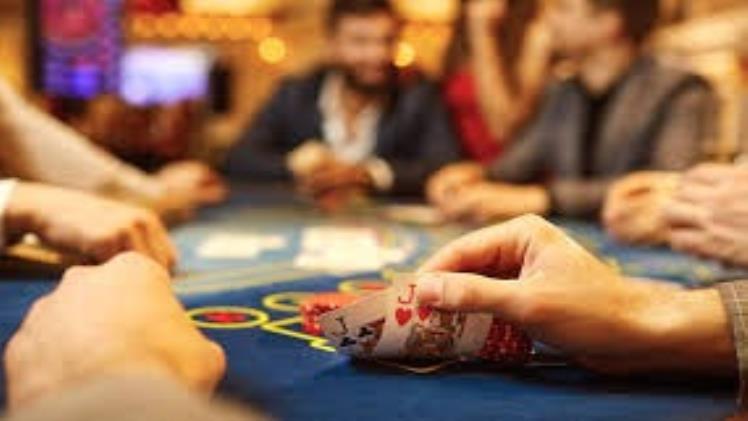
For anyone who has ever stepped foot into a casino—or logged into an online gaming platform—there’s one unspoken rule that governs every spin, shuffle, and roll: the house always wins. While this phrase might sound ominous or discouraging, it doesn’t mean players can’t win in the short term. Instead, it points to a mathematical advantage built into every casino game known as the house edge.
Understanding the house edge is crucial for anyone interested in casino gaming, whether for entertainment or profit. In this article, we’ll explore what it is, how it works, and what players should know before placing their next bet.
What Is the House Edge?
The house edge is a percentage that represents the average profit a casino makes from each bet placed by players. It’s a built-in advantage that ensures the casino stays profitable over time.
For example, if a game has a house edge of 5%, it means that for every $100 wagered, the casino expects to make $5 in profit on average. This doesn’t mean every player will lose $5 out of $100—they might lose more, win big, or break even. But over thousands or millions of bets, the average will tilt in the casino’s favor.
Why Casinos Need a House Edge
Casinos are businesses, and like any business, they need to generate revenue to cover expenses such as staff salaries, maintenance, utilities, technology, and profit margins. The house edge provides a predictable and consistent stream of income, ensuring the casino’s long-term survival.
This built-in advantage is not cheating or manipulation—it’s simply how games are designed. Casinos do not need to rig outcomes; the odds are already in their favor.
House Edge in Popular Casino Games
Different games have different house edges. Some are relatively low, offering better odds to the player, while others are much higher, giving the casino a larger advantage.
Blackjack
One of the most player-friendly games, blackjack has a low house edge—typically around 0.5% when played with optimal strategy. This means skilled players can minimize losses and even gain a slight advantage in rare situations, such as card counting.
Roulette
In European roulette (with a single zero), the house edge is 2.7%. In American roulette (with both 0 and 00), the edge increases to 5.26%, making it less favorable for players.
Craps
Craps offers a variety of bets, some with very low house edges (like the “pass line” bet at 1.41%) and others with high edges (like certain proposition bets reaching over 10%). Understanding the best bets is key to 78win.
Slot Machines
Slots are known for their convenience and entertainment value, but they also tend to have some of the highest house edges. Depending on the game, the edge can range from 4% to 12% or even higher, especially on progressive jackpot machines.
Baccarat
This classic game offers a relatively low house edge—1.06% on banker bets and 1.24% on player bets. However, tie bets have a much worse edge, often exceeding 14%, making them a poor choice for savvy players.
How the House Edge Works Over Time
The longer a player stays in the game, the more likely the house edge will work against them. This is due to the law of large numbers, which states that the results of a large number of trials will converge on the expected average.
A player might win big in a single session, but if they continue to play long enough, the house edge will gradually erode their winnings. That’s why casinos offer free drinks, luxurious surroundings, and extended hours—to encourage players to stay longer and place more bets.
RTP: The Flip Side of House Edge
In online casino games, you might come across a term called RTP, or Return to Player. This represents the percentage of total bets that are paid back to players over time.
For instance, a slot machine with a 95% RTP means that for every $100 wagered, $95 is returned to players in the long run, and $5 goes to the house. In this case, the house edge is 5% (100% – 95%).
RTP is simply the inverse of the house edge and gives players a good indication of how “friendly” a game is in the long term.
Can You Beat the House Edge?
While the house edge ensures đăng nhập 78win remain profitable, that doesn’t mean players can’t win. Many people walk away from casinos with money in their pockets—sometimes life-changing amounts. But this is usually the result of short-term variance rather than long-term odds.
That said, there are strategies to maximize your chances:
- Play games with low house edges (like blackjack or baccarat).
- Learn optimal strategy for games that allow skill (e.g., blackjack or poker).
- Set a budget and stick to it, treating gambling as entertainment rather than income.
- Take advantage of bonuses and promotions that increase your bankroll.
- Know when to walk away, especially after a big win.
House Edge in Online vs. Land-Based Casinos
Online casinos often offer slightly better odds than brick-and-mortar casinos. This is because online platforms have lower operating costs and can afford to provide games with higher RTPs. Some online slots boast RTPs of 96% to 98%, much better than many physical machines.
However, the convenience of online gambling also means players may spend more time and place more bets, which can still lead to losses over time.
Final Thoughts
The house edge is an essential concept in understanding how casinos operate. It’s not designed to eliminate winners, but rather to ensure the casino stays profitable in the long run. By knowing how it works and choosing games wisely, players can enjoy casino gaming with clear expectations and smarter strategies.
In the end, the best way to enjoy casinos is to play responsibly, know your limits, and always remember: the odds are designed to favor the house—but they don’t always win every hand.